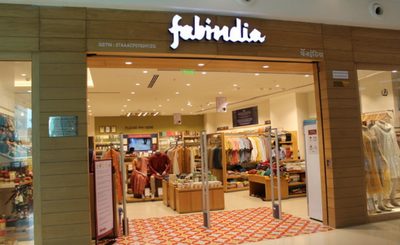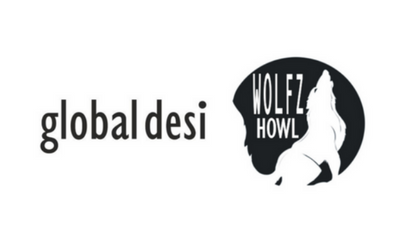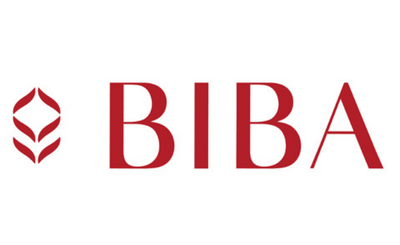Miniso is on an overdrive in India.
A year after entering India’s $670 billion retail market, the little-known brand has already opened close to 30 outlets in the country. It sells a range of affordable assorted goods on the lines of Japan’s 100-Yen shops, akin to dollar stores.
The company, which describes itself as a “Japanese designer brand”, is looking to set up an astounding 800 stores by 2019.
For comparison, supermarket chain Big Bazaar, one of India’s most popular retailers which launched in the early 2000s, has around 250 stores.
In just its first year in India, the Guangzhou, China-based $1.8 billion turnover firm has raked in Rs700 crore ($98 million) in revenue, making the country one of its top five global markets.
Miniso, which calls itself a lifestyle brand, has already laid out its franchising options in India. It now eyes an e-commerce channel for smaller Indian markets where large malls and high-streets are far and few between. The chain’s wares are finding takers among value-conscious Indian shoppers.
“Looking at the demographics and the number of youngsters we have in India who are open to concepts like these (high quality at low prices), India is a very positive environment,” Miyake Junya, the Japanese designer who co-founded Miniso, told Quartz over an email.
Miniso in Japan
Junya launched Miniso in 2013, along with Chinese businessman Ye Guofu, in Tokyo
It sought to be a discounted variety store that picked the latest trends from the world-over and manufactured them at scale. This kept prices low and helped it turn out the latest batch of trendy goods every few weeks.
Miniso’s assortment of 4,000 products includes stationery, storage items, cosmetics, fashion goods, accessories etc. Today the retailer has over 1,800 stores in 40 countries, a bulk of them in China, apart from countries like India, Canada, the US, Russia, Dubai, North Korea, Hong Kong, Pakistan, Indonesia, and Singapore.
The idea, according to Guofu, was to create affordable and in-sync products. In an interview with CKGSB Knowledge, Guofu said:
We were inspired by the 100-yen shops popular on Japan’s streets, and the harmonious co-existence of physical economy and e-commerce in Europe and America’s markets. Also, that period also witnessed the rise of minimalism, which was quickly accepted by consumers from different backgrounds. It meant that after fully experiencing sophisticated design, consumers are now longing for simply styled and quality products to adorn their lives.
Its products are designed in Europe and Asia before being manufactured in China, Japan, South Korea, Singapore, and Indonesia. This makes Miniso a well-curated store that sells inexpensive basic goods that one would otherwise buy online or from street shops.
Surprisingly, Miniso’s genesis continues to confuse shoppers. In fact, even though Miniso calls itself a Japanese lifestyle brand, its websites list Guangzhou, China, as well as Tokyo as its headquarters. It also has a bulk of stores in China. In fact, its red logo closely resembles that of Japanese fast-fashion brand Uniqlo, a claim the company has denied.
Consumer connect
While it does sell regular products like bags, storage containers, socks, yoga mats, shower caps, stuffed toys, and alarm clocks, all priced between Rs150 to Rs1,000, some of Miniso’s offerings are fairly obscure—at least for India.
For instance, there is the finger massager (Rs150), a mouth mask (Rs150), sewing kits (Rs150), portable shoehorn (Rs75), there’s even a tissue roll hanger for Rs150. These products aren’t easily available in regular departmental stores. The retailer recently even added a cosmetics section.
Not surprisingly, its stores are drawing all kinds of shoppers: students, office-goers, and home-makers, with many first-timers among them.
However, retail experts remain divided on the idea.
“Their (Miniso’s) price and curation are great positioning points for a market like India,” said Ankur Bisen, senior vice-president for consumer and retail at Technopak Advisors.
But their products are mostly easily available even otherwise. Besides cheap Chinese imports, India’s manufacturing boom over the last two decades has ensured that such products of daily use are in ample supply.
“It’s not like their products are very unique, they can be easily replicated; but what they have is the first-movers advantage. In the long run, they will need to innovate to compete with similar formats,” said a former retail expert on the condition of anonymity.
However, what makes Miniso distinct is that products sold in local markets are not all available under one roof. In India, 90% of all shopping still takes place in open markets, street shops, and through mom-and-pop stores. ”They (Miniso) have taken on a very unorganised sector and made it accessible, no doubt,” the analyst quoted above added.
Going forward
The company itself is ignoring the naysayers.
It plans to enter cities like Jaipur, Lucknow, Chandigarh, and Kolkata soon. It has also picked-up heavy-footfall locations (such as busy markets and metro stations), along with upmarket malls, to draw a variety of shoppers. It will also set up e-commerce operations going forward.
Now that’s a promising strategy.
“In India, the phenomenon of malls is relatively new. So, being present in both malls high streets works well for Miniso. High streets have a power of attraction and business at malls too is brisk,” Junya said.
The development was first reported by Quartz India






